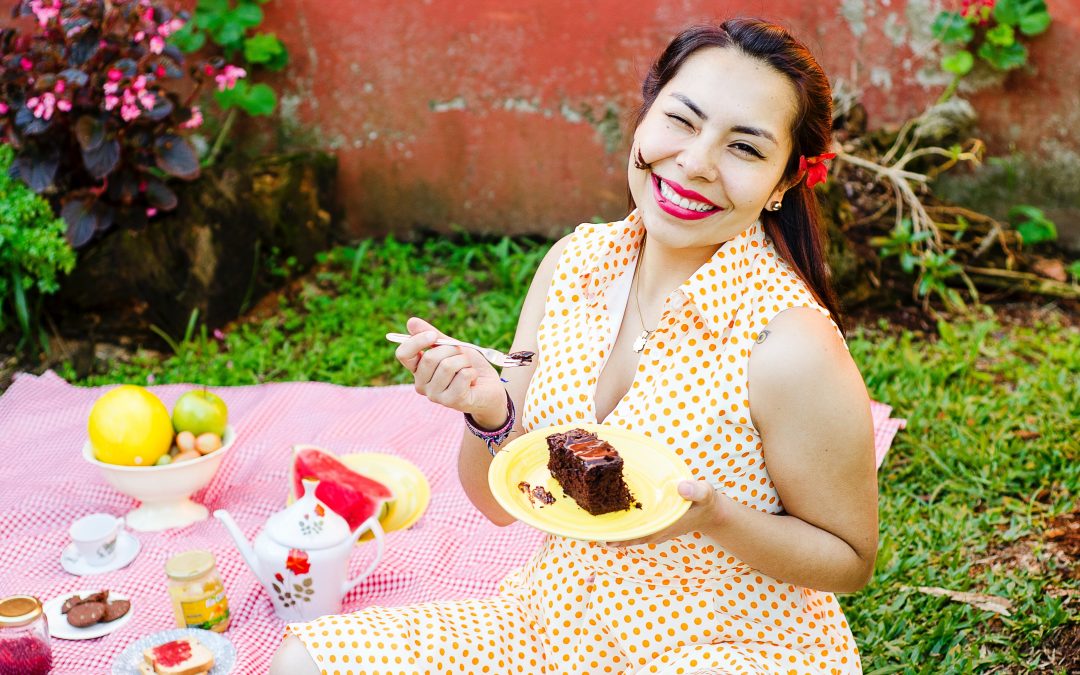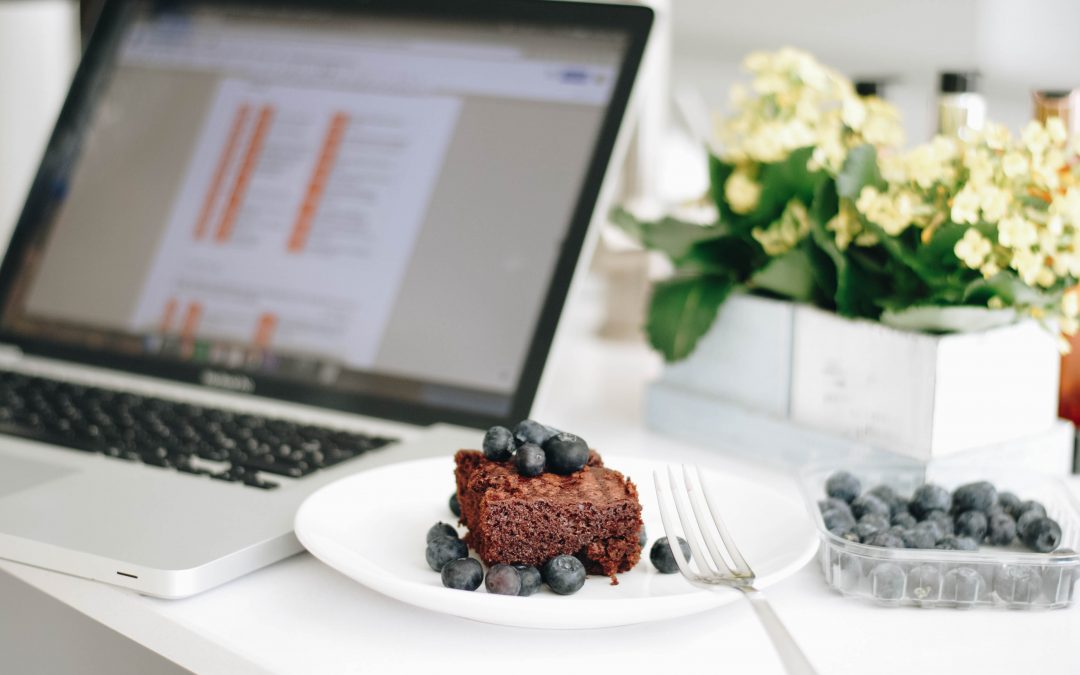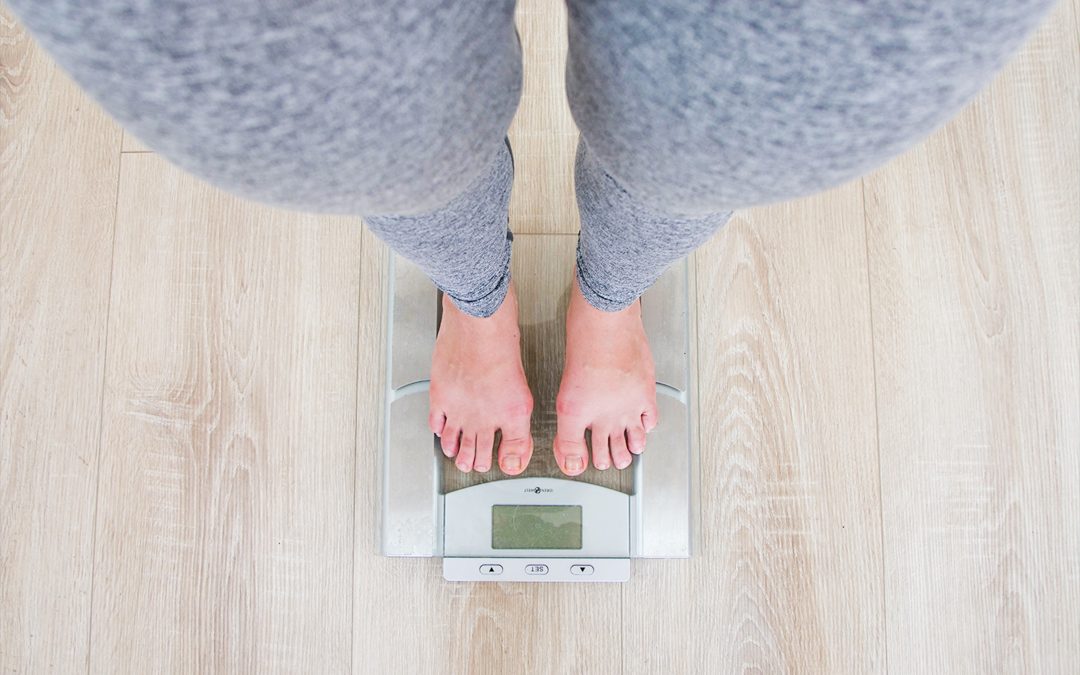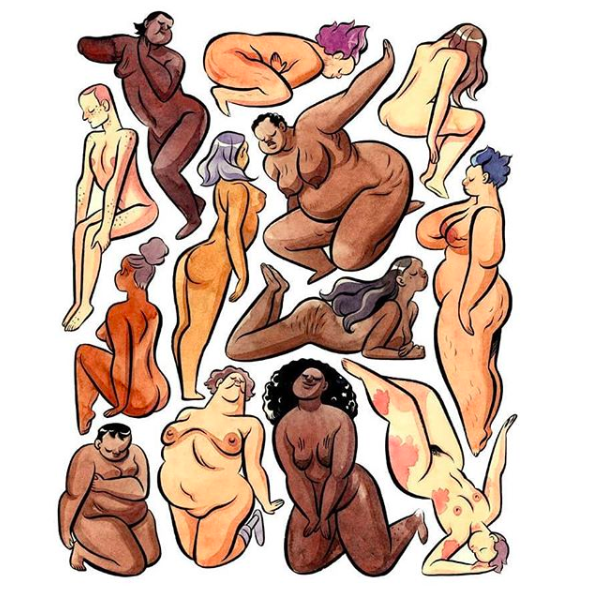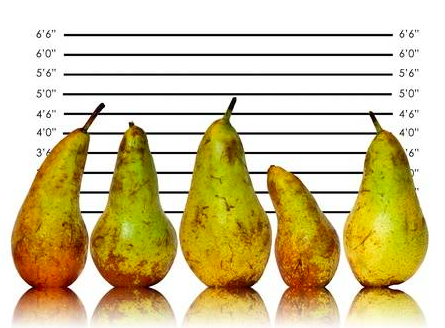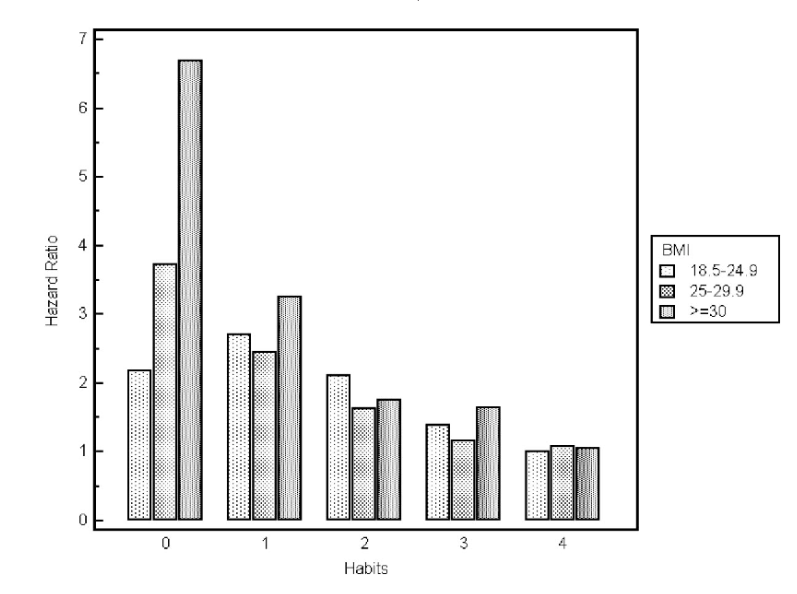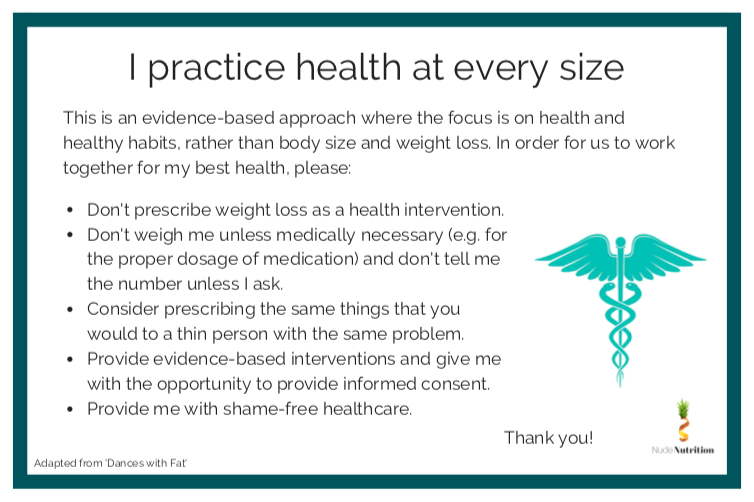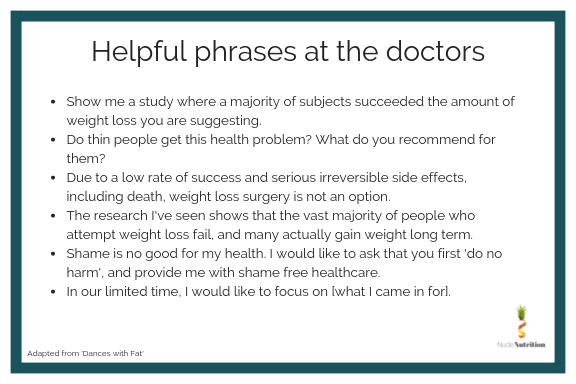Intuitive Eating is composed of 10 key principles:
- Reject the Diet Mentality
- Honour Your Hunger
- Make Peace with Food
- Challenge the Food Police
- Respect Your Fullness
- Discover the Satisfaction Factor
- Honour Your Feelings Without Using Food
- Respect Your Body
- Exercise—Feel the Difference
- Honour Your Health with Gentle Nutrition
This may all sound like a lot, after all, leaving dieting behind is no easy task. But no fear, we are here to help! Here are some tips to help you get started on your intuitive eating journey.
Firstly, Take the Quiz To Find Out if You’re Ready
Check out the link here: How Do You Know if You’re Ready to Stop Dieting?
1. Reject the Diet Mentality
In the spirit of Marie Kondo, say goodbye to dieting, it does not spark joy! The very first principle of Intuitive Eating is to “Reject the Diet Mentality.” Intuitive eating is not another fad or 21st-century “wellness diet” or food plan. It’s also not a weight-loss focused approach. So can you throw away the scales, drop the diet tools and learn how dieting doesn’t work, and reflect on how dieting has not served you. Take some time to journal or reflect upon what you’ve tried so far, the ways it has interfered with your life and whether it’s resulted in the long term desired outcome. It is okay to miss dieting, or even mourn it for a little, whatever you have to do to respectfully say goodbye, thank it for whatever role it served, and move on. The pursuit of weight loss or weight control actually causes more harm than good for the majority!
2. Honour Your Hunger
One of the second most important steps of IE is to learn to honour your hunger. How can you possibly eat consciously and moderately when you approach food in a state of desperate hunger? Of course, you’re likely to grab anything in front of you, shovel it down with a load of air, feel overly stuffed and then potentially guilty about ‘overeating’. If you can stop yourself from getting to this point of desperate hunger, you’re more likely going to be able to implement some of the other principles. See this as the first layer of the process. So try rating your hunger on a scale of 0-10 before you eat something. Are you tuning into your hunger cues? Here’s a scale to get an idea of how. If you’re really stuck, a good cadence that works for many is eating something every 3 hours and not leaving more than 5hours between eating. This might look like breakfast, lunch, dinner, and 2 to 3 snacks throughout the day. Eating enough, and regularly, is crucial to feeling more in control around food.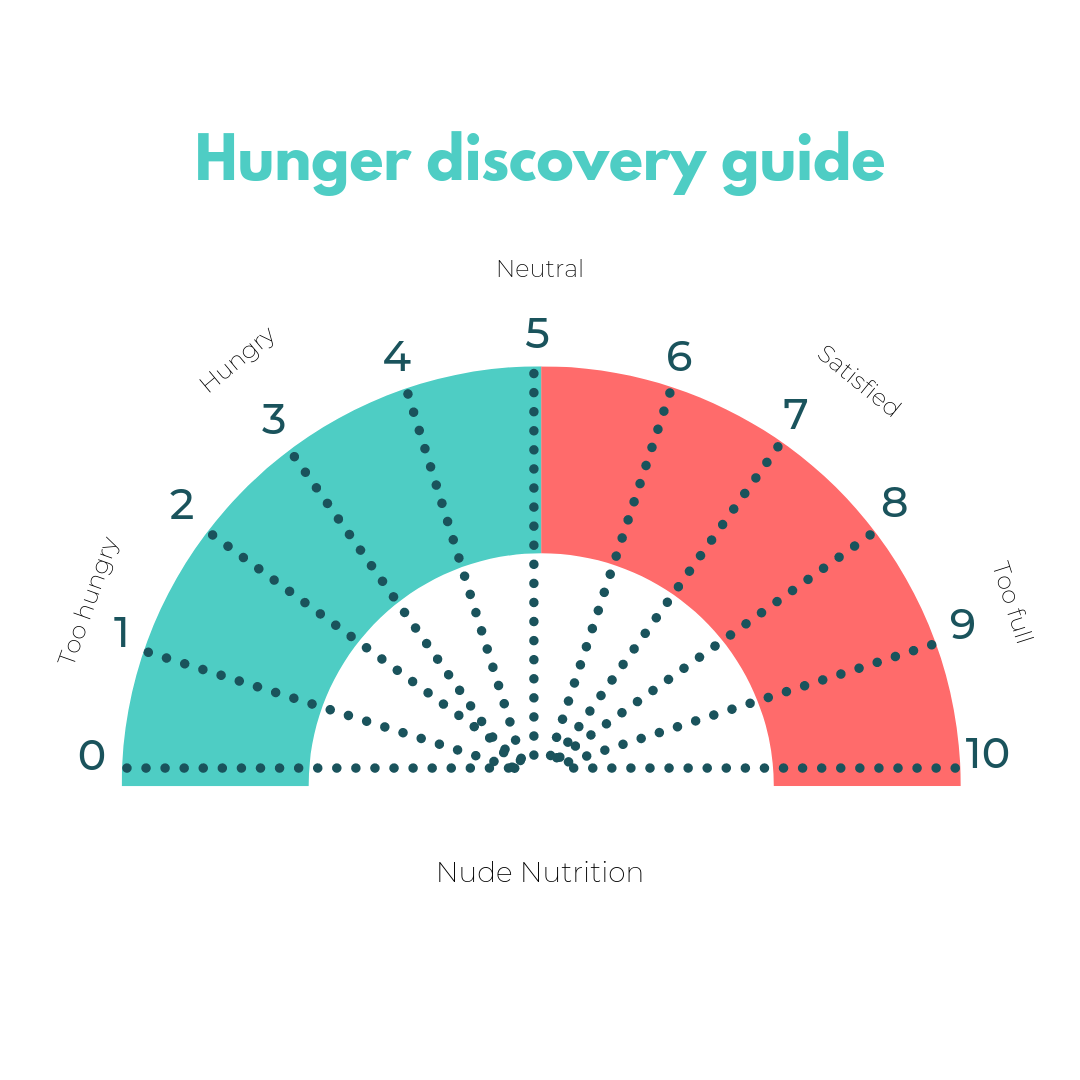
3. Make Peace With Food
When we label foods with words like “good/bad” “healthy/unhealthy”, and “clean/dirty”, it puts food on a moral hierarchy. Of course, different foods have different nutrients in them, but eating a cookie doesn’t suddenly make you “unhealthy” and eating a salad doesn’t make you “healthy”. Plus, when something is “off-limits” we actually want it more.
Think about this. If you tell a kid not to eat something, what do they want to do? They want to eat it! The same happens with us adults. So if you place certain foods up on a pedestal (bread, cheese, chocolate, crisps are usual suspects) then of course the desire to eat them will be stronger.
So this step is about giving yourself permission to eat ALL foods! Yes, I know that sounds super scary. But the reality is, that restriction hasn’t worked either. Restriction in fact fuels the binge restriction cycle.
Restrict > Feel Obsessed > Binge > Feel Bad > Restrict again
One way to start making peace with food is to write a list of all the foods that you consider off-limits, or feel guilty about. Systematically, start introducing one at a time with your meals – at a time when you’re not too hungry, tired, stressed or generally in a vulnerable place. You might want to start with something on the list that feels the least problematic, and work your way up as and when you feel comfortable.
4. Challenge The Food Police
The food police are the thoughts, beliefs and the negative voices in your head, trying to tell you what to eat when to eat, and how much to eat. It judges everything you put into your mouth. The food police typically stem from diet culture.
From things diets have told you, to things people have told you, things magazines have told you, etc. It can be hard to know which food facts are true and which ones have come from diet culture.
Examples include:
- “Don’t eat bread more than once a day”
- “You should never eat processed/meal deals foods”
- “Don’t drink your calories”
- “Carbs are bad, try to limit these”
- “Sweet foods are a treat and should only be eaten every so often”
- “Whole unprocessed foods are best”
- “Don’t eat lunch before 12pm”
- “Eating less than XXXX calories/day is okay”
The problem with these? They teach you to go to your head for the answers on what you “should” be eating. And your body might be asking for something different. This can contribute to guilt, food obsession, or control eating, and keep you feeling stuck!
“But what about health?” you might be asking? There is a difference between following a rule that’s rooted in the diet mentality and not serving you, versus a rule that’s in your interest of self-care. As you move through this process, you will be able to feel more neutral about food, and therefore, make choices more on what feels good for you and your body. But this takes time, so it’s important to be kind to yourself along the way.
Examples of a kinder approach to food, eating and your body:
- “I am lactose intolerant, so cows’ milk tends not to work well for me. I try to limit this in my diet as it gives me an upset stomach”.
- “I am quite sensitive to caffeine, so for the most part, I try to avoid drinking caffeinated food or drinks in the afternoon as it disrupts my sleep and makes me feel anxious”.
- “My cholesterol is high, so I try to add more olive oil, nuts and fibre into my diet to help support my cholesterol levels where I can.
- “I am conscious of my dental health, so I try and drink sugar-free fruit squash or alternatives where I can. If I fancy a sugary drink or feel I need the energy, I will have one”
How to start challenging the food police? As you go throughout your week, and you make food choices, write out what the judgemental voices in your head say about that choice. Keep adding to this list (which are essentially your food rules). Begin to start to challenge these rules. E.g. where did I hear this? Is this really true? Would I say this out loud or inflict this on a friend? If the answer is no, it’s likely a diet rule that needs to be challenged. So challenge it. Work through this one by one, and do the opposite. For example, if your rule is “no lunch before 12pm”, and you feel hungry at 11:30 am, eat your lunch! Reflect on what happened. How was this? Can you offer a more balanced view of this food or rule?
5. Respect Your Fullness
When was the last time you stopped eating when you were comfortably full? Feeling BETTER for eating? When stuck in the diet mentality, we can often swing from being overly hungry (through restriction) all the way to being stuffed. With intuitive eating, no foods are off-limits and there are no rules. You can, therefore, feel safe in the knowledge that you can eat as much as you need to feel comfortable right now, and eat again when your body is ready for it.
How to start respecting your fullness? First of all, work on hunger and making peace with food. If you’re approaching any food when ravenous, or, if your brain isn’t convinced 1) you should be eating it, or b) you can only have this food once a week, of course, it’s going to be difficult to stop when you’re full. So start there.
If you’re confident in those parts, mindful eating, slowing down, and paying attention can help you to connect with what fullness feels like in your body. If you’re part of the “clean plate club” (aka can’t leave any food on your plate), practice leaving a forkful of something that doesn’t feel wasteful like bread, lettuce, or rice can be helpful to get your brain used to know it’s okay to leave food.
6. Discover Food Satisfaction
Wellness culture or “diet culture” is the culture that steals the joy from food, telling us what we “should” or “shouldn’t” eat, rather than tuning in to what we actually enjoy or find pleasure in. We can end up in this battle of not knowing what to eat. So how do you decide what to eat when you’re feeling hungry?
- Do you just go with the first thing that comes to mind?
- Do you eat whatever is around?
- Do you choose foods based on what you think you should be eating?
- Or do you choose what sounds good?
Rice cakes, kale crisps, and low-calorie cereal bars may not be leaving you feeling too satisfied. When we make choices based on what we think we “should” be eating, quite often we find ourselves at some point in the day or week, uncontrollably diving into the foods we are trying to avoid (cheese, cookies, chocolate, ice cream, etc.) Through mindful eating exercises, and really tuning into your taste buds, you will learn to discover what foods you actually enjoy, and what foods aren’t serving you too well.
So take some time, if possible, to eat without distractions. You could pick just one meal or snack to do this with. Sit down alone at a table, with your phone tucked away and the TV turned off. How does the food taste, smell, and look? Do you like the colour, flavours, and textures? Is this feeling enjoyable? This will help you learn what is actually satisfying to you. *Spoiler* if you misgauge your hunger and serve yourself more than you actually want, you can save it for another time!
7. Honour Your Feelings Without Using Food
Emotional eating is perfectly natural and is usually an act of self-care. If you’re emotional eating, your body is just trying to say “hey, something is up”. And sometimes, the only tool you might have in your emotional coping toolbox is food! So taking that away completely, might feel really scary.
Emotional eating should not fill you with guilt. It’s part of being a human. However, if food becomes your only coping tool, it might not feel great. As you move through the intuitive eating journey, honour your hunger and remove the forbidden factor from foods, emotional eating can actually dissipate. However, if food is still your only or main coping mechanism that’s okay! It’s possible to identify other areas of your life that may be impacting your ability to tune into your body’s natural signals (e.g. lack of sleep, stress, boundaries).
I have designed this flow chart to help. If you feel you need more help with this area, check out my article on “how to navigate emotional eating” here.
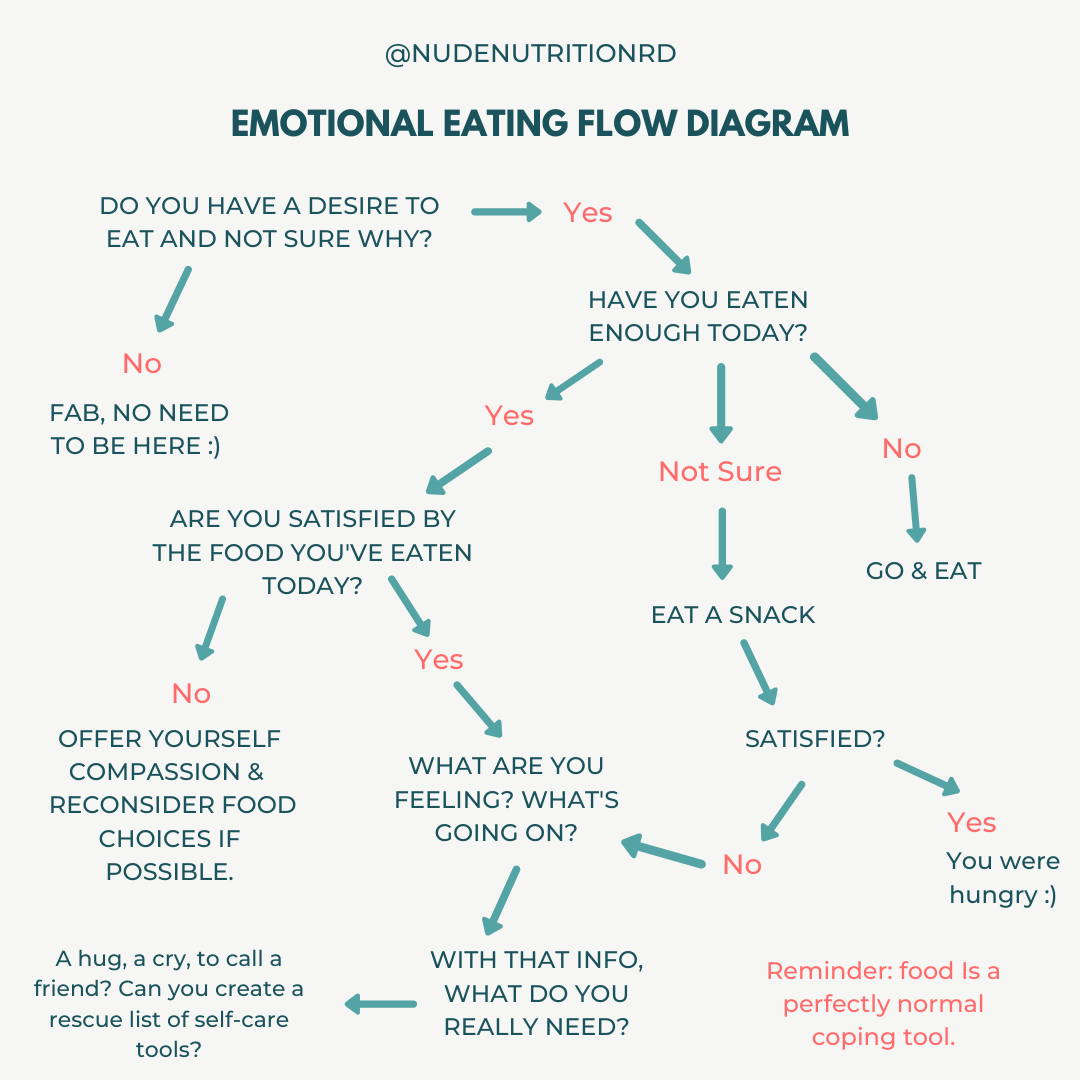
8. Respect Your Body
Our bodies are pretty freaking cool. They are so many systems in place that allow us to survive. It’s time to accept that your body shape and size are special and unique to you and to not base your value or worth on a number. Your genes are set in stone, so being critical about something that you can’t change is not a helpful exercise.
Having a better body image isn’t something that happens overnight. But how about you set a goal to be more generous to yourself more days than not? Or, identify one thing a day you can do that shows yourself care and compassion. This can look like a good bedtime, decluttering toxic social media from your feed, or spending a day break from work. You are worthy of self-compassion and care. You owe it to yourself to invest in yourself. If you need some more body positive accounts to follow, you can find some ideas here.
9. Exercise to Feel The Difference
When exercise is tied up in burning off food or earning food, it’s usually not enjoyable, and not something that is sustained. Intuitive exercise can help you to identify ways to bring more joyful movement into your life for fun, fitness and with friends, rather than to punish your body. It’s time to ditch rigid exercise plans if they aren’t serving you, and certainly, remove pursuit of activities that you don’t enjoy. If you find movement that makes you feel good, you’ll automatically want to do it more often without even realising!
Where to begin? When you next have a desire to exercise, ask yourself “would I do this if this didn’t change my body or burn calories in any way?”. If the answer is no, don’t do it. If the answer is yes, then ask yourself “would I do this any differently”. For example, you might want to move, but instead of a run alone, you want to walk with a friend or loved one? It doesn’t have to be all or nothing.
10. Honour Your Body With Gentle Nutrition
This is all about nourishing your body with foods that satisfy you and make you feel good. There is no such thing as eating perfectly. This principle comes last because adding more information about nutrition in the earlier stages can just add more rules! It turns out that most people find eating a nutritious balanced diet feels good! No foods are off-limits and we can identify how ALL foods have an important purpose to serve. And it is about doing this consistently over time.
Where to begin? Take a look at my favourite diagram from The Rooted Project. Do you feel you have the balance? Which of these areas of a balanced approach to nutrition feels out of balance for you? After all, nutrition isn’t all about just the nutrients in the food. It’s about eating a variety of foods over time, in and amongst all of the other sections on the diagram.
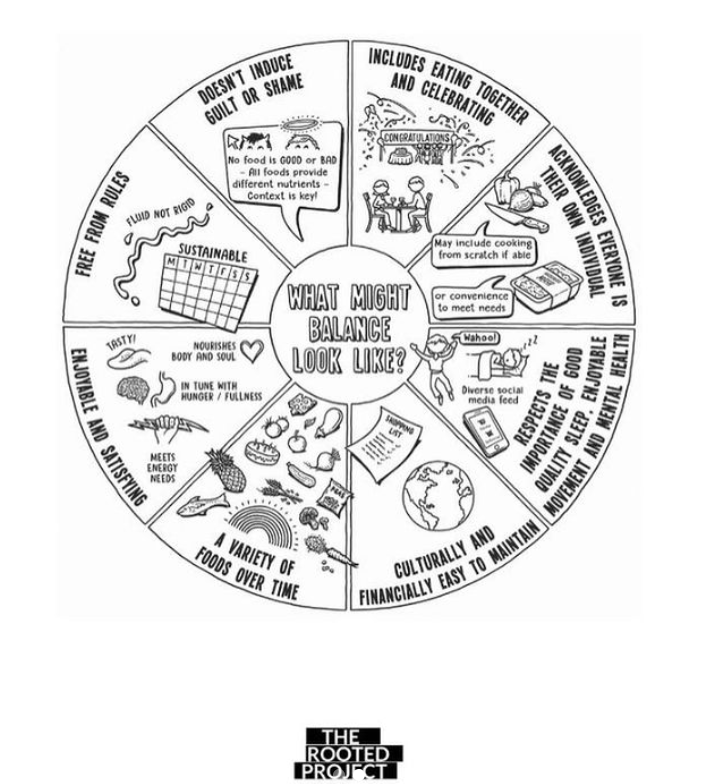
And Last But Not Least… Be forgiving to yourself
The beauty of intuitive eating is that it leaves room for our imperfections. How many years have you been trying to shrink your body, and follow food rules and diet plans? I imagine a little while. So you can’t expect to undo this work overnight and that’s okay! Sometimes you will eat and feel overly full and sometimes you may still feel hungry. All of this is part of normal eating. Like most things in life, intuitive eating isn’t linear and ups and downs are to be expected. One thing I would encourage is to practice talking to yourself like you would your best friend.
In Summary
Intuitive eating is complex and it’s a personal journey of building up your own toolkit of life skills. This way, you can be the boss! Not the meal plan/points system/or calorie counting app! Many people think that when they give themselves permission to eat and stop following the rules, they have ticked off this intuitive eating thing. It’s a lot more complex than that and there are many levels to unravel. If you would like to learn some more ways that you can get started on this journey, check out my free audio guide and workbook, providing you with 7-steps to find food peace and food freedom.



